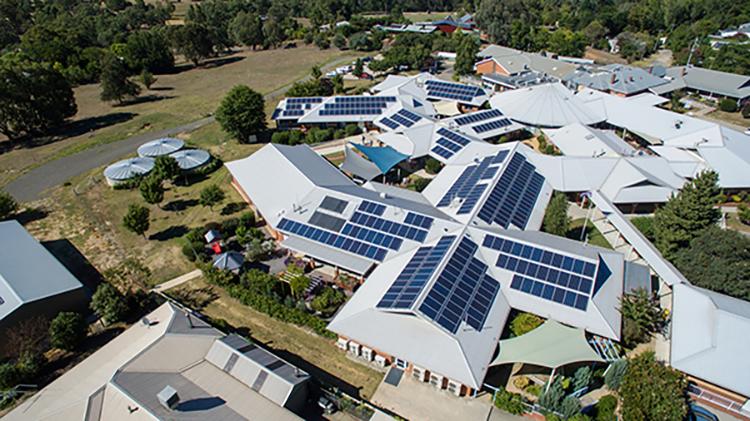Residents of northeast Victoria's Yackandandah have made considerable savings by using the sun to power their homes. Yackandandah, affectionately known as 'Yack,' is more than just a case study in renewable power—it provides other communities with a blueprint for a community-led energy transition.
In 2014, a group of residents launched Totally Renewable Yackandandah (TRY) with a vision of their town operating on 100% renewables by 2024. Through sheer determination, the volunteers in TRY have facilitated over $2 million in community-driven investment into solar and battery systems. Today, 65% of rooftops in Yack boast solar panels, and the town has trialled 3 pilot microgrids, established a Virtual Power Plant of 210 properties, provided almost all community buildings with solar (and 5 with batteries), and installed 2 community batteries, Yack01 (274 kilowatt-hour) and Yack02 (200 kilowatt-hour).
Unlike traditional centralised energy systems, Yack's model boosts the local economy, making energy an asset to individual households and organisations. Households with solar in Yack save an average 63% on their power bills, with a payback period of just 3–5 years. TRY also helped establish a community-based energy retailer, Indigo Power, now an independent and thriving social enterprise.
Trust is gold
The community-led journey to renewables was not without challenges. Convincing some residents of the benefits of renewables took time. TRY tackled this by prioritising community relationships over short-term project wins—striving to nurture community trust, ensuring projects directly benefited them, and addressing their local preferences. Sometimes this required patient persistence, with initiatives taking several years to be realised. There are local voices in opposition to these efforts, and their concerns continue to be explored in public meetings and one-on-one chats over coffee.
Evolving better, together
TRY's strategy is to do projects 'with' the community rather than 'to' the community. Their approach is pragmatic and innovative: always looking for smart ways to use renewables by thinking about energy differently. They creatively applied the capability of batteries to provide essential services when centralised power systems fail, supporting stability in the local network. With a grassroots-led energy transition, it is possible to excite a community as they embark on social and technological transitions.
This isn't just about sustainability—it's about community resilience and economic empowerment. An early win occurred in 2016 when TRY collaborated with the town's health service to install 99 kilowatts of solar panels and undertake some efficiency measures. This saved $35,000 annually, allowing the community to have critical health care services funded.

Image: Solar panels on Yackandandah community health service.
Sharing knowledge and benefits builds community
TRY's approach has inspired many other communities to develop their own locally relevant clean power programs. Such community-led initiatives demonstrate local communities have the capability to design an energy future customised for their environmental and economic needs.
A decade of conversations about the potential of renewable energy has generated a number of independent local initiatives in Yack: the Cemetery Trust now powers its equipment from solar power, the post is delivered on electric bikes, the garden club uses an electric wheelbarrow, the golf club charges carts with rooftop solar, and the local Country Fire Authority and State Emergency Service have backup batteries and generators.
Through re-skilling and education, Yack's energy transition has built the capacity of the community and provided independent advice to take advantage of the social and economic benefits of renewable power. The message is clear: encouraging 100% participation and thinking about energy differently, can help create an energy future that is 100% renewable, while also strengthening the local community.
Note: Case study current as at 22 October 2025.
A version of this case study, authored by Dr Sarah Houseman, first appeared on the Nurturing Evolutionary Development (NED) Foundation website.